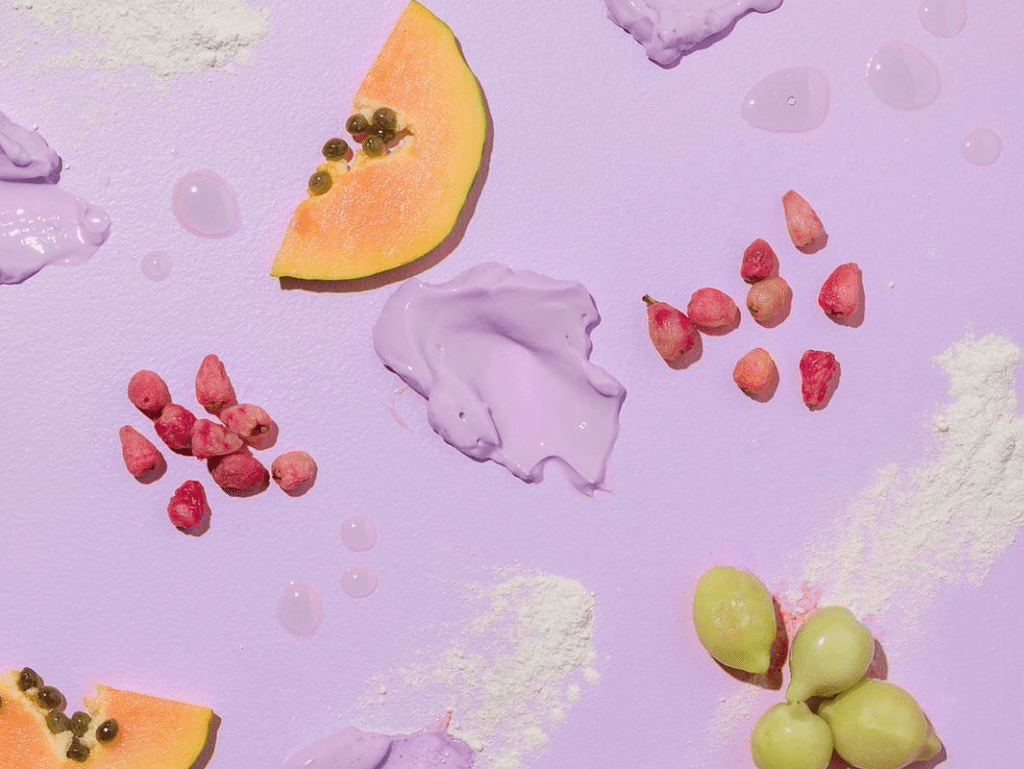
When it comes to the factors informing purchasing decisions for the new generation, sustainability is top of mind. From legacy brands to new kids on the block – all are facing changing expectations in company practices, formulations of products and brand priorities.
We’ve rounded up the brands taking leaps and bounds in sustainable practices, products and how they’re giving back to surrounding communities.
Sand & Sky
The aforementioned new kid on the block, Sand & Sky are proof of the power of the viral space. Shooting to fame via social media with the original Australian Pink Clay Mask, the brand has gone from strength to strength in harnessing Australia’s natural ingredients for skincare. Having recently launched the Tasmanian Spring Water range, Sand & Sky are sharing their commitment to protecting the environment as they champion natural Australian ingredients and clean skincare on a global scale. From responsibly sourcing ingredients, to boasting no-nasties formulas and 100% recyclable packaging, the brand is proof of the desire for ethical consumption.
In responsibly sourcing ingredients, the brand prioritises only working with “the most ethical and environmentally conscious suppliers.” But what does that actually mean? In breaking it down, it means Sand & Sky only source ingredients from farmers that employ “sustainable farming and harvesting practices, as well as “taking care of their employees, our communities and our land.” This includes working alongside bodies such as Ecocert, Cosmos and Nature to ensure being up to date with leading sustainability and eco-certifications. The Aussie brand can also boast no-nasties formulas, with all products free from sulphates, silicones, parabens, petroleum, phthalates, mineral oils and palm oil. Plus, have created exfoliants made from natural, biodegradable particles that “won’t clog drains or harm our ocean life,” the brand explains.
Shop Sand & Sky here.
Garnier
As of 2020, Garnier has further committed to its Green Beauty initiative. A staple in the beauty space, the brand is working to “radically reduce the [its] environmental impact by 2025.” So, how are they getting there? “The initiative is a complete end-to-end approach to sustainability that aims to transform every stage of Garnier’s value chain and includes a commitment that by 2025 Garnier will use Zero Virgin Plastic in all packaging, saving 37,000 tonnes of plastic every year,” explains a representative from the brand. Additionally, since 2005 Garnier plants and distribution centres have cut water usage by 45 per cent, CO2 emissions by 72 per cent and is working towards a 2025 goal of 100 per cent of industrial sites being carbon neutral.
The legacy brand, who are a part of the L’Oréal Group have also partnered with organisations such as Ocean Conservancy and Take 3 For The Sea, who are similarly aligned “with the desire for a more sustainable future. Plastic in our oceans is a major issue and we need to work together to drive positive change,” says Garnier General Manager, Geoff Bellingham. This alignment has also led to Garnier’s involvement in other activities such as International Coastal CleanUp Day, which took place in September in Australia, as well as partnering with environmentalist and now Garnier Ambassador, Laura Wells.
Shop Garnier here.
Emma Lewisham
While we’ve sung the praises of Emma Lewisham’s clean products before, the brand’s commitment to sustainability is unparalleled. Not only is the brand the first in the world to package a face beauty product in Post-Consumer-Recycled (PCR) plastic, but was also New Zealand and Australia’s first brand to partner with TerraCycle® through the brand’s exclusive Beauty Circle.
Emma Lewisham products are also manufactured in New Zealand with 80 per cent renewable electricity, with an audit currently being undertaken to better understand and improve the brand’s water consumption through manufacturing, with the goal to significantly reduce this in 2021.
In addition, the ingredients the brand works with are sourced from ethical growers. “For example, one of our botanical oils is sourced from women’s cooperatives in Morocco, giving them independence and income. Profits from the co-ops go into funding tutors to teach the women how to read and write, provide scholarships for their children to attend college, and healthcare costs… We call it ‘farm to face’…having a direct line to the farms we source our ingredients from, working with them to grow alongside us and improve how we operate together,” Lewisham previously told Centennial Beauty.
The brand has recently added an Illuminating Oil Cleanser and Illuminating Exfoliant to the range.
Shop Emma Lewisham here.
Is a brand you love doing great things in the sustainability space? Send us a DM on Instagram @centennialbeauty to let us know!

